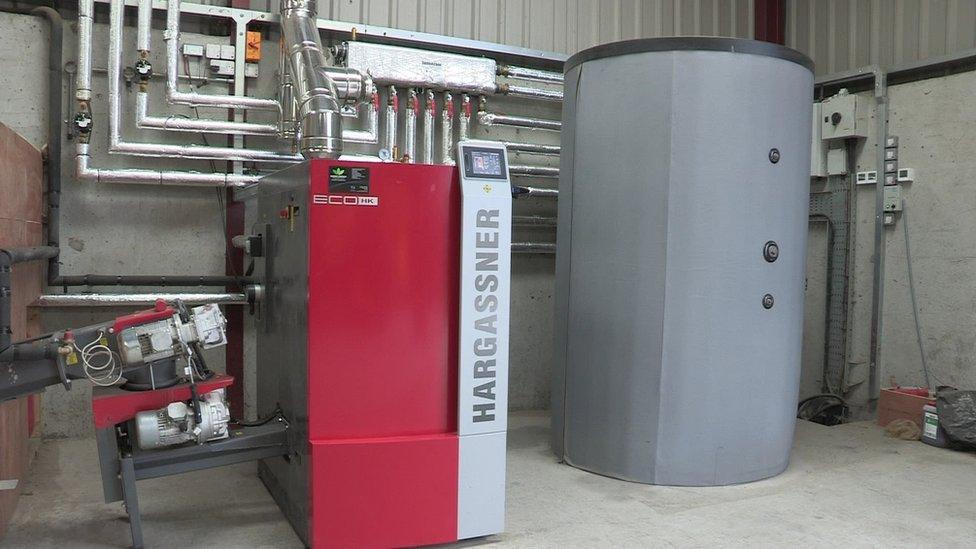RHI boiler owners' challenge 'motivated by money'
- Published

A row over the contentious RHI scheme prompted Stormont's institutions to collapse last January
Renewable Heat Incentive boiler owners were not interested in the environment and a failed legal challenge to cuts in their tariffs was motivated by money, a court has heard.
The claim was made during a hearing to decide who pays for the action: Boiler owners lost their case in December.
They applied for cost protection to limit their financial exposure.
It means they are liable for only £15,000 of the legal costs of the Department for the Economy.
The department is contesting the application.
The Renewable Heat Association NI (RHANI), which took the action on behalf of members, had to pay its own costs which ran to more than £200,000.
They had sued the department over cuts to their RHI subsidy levels, and asked for them to be overturned.
The organisation represents 500 boiler owners and took the case under the Aarhus Convention.
That is an EU provision which protects applicants who want to challenge governments on environmental issues.
But a barrister for the department told the High Court the issues in the case were "fundamentally financial".

The RHI scheme subsidised the cost of claimants' fuel - mostly wood pellets - for running renewable heating systems
He said the reason the department had won was because the judge decided the public interest in preventing a massive projected overspend outweighed private interests of a "cohort of operators" who "sought to maintain a financially advantageous position".
But a QC for RHANI said the action was "classically" an Aarhus case.
It involved a government incentive to switch away from fossil fuels and help the authorities meet environmental targets, he said.
The barrister added that the department had known from early in the case that RHANI was seeking the cost protection.
If it had objected, it ought to have done so at the start, not the end of the case, he said.
"The time to do it is early on and do it quickly," he said.
He said to do it a year after the case had been lodged put RHANI in an "ambush position" facing "open ended costs".

A biomass boiler, similar to those owned by some RHI scheme claimants
The judge agreed that the case had been "all about the money", but said it did involve legislation involving the environment.
He will deliver his judgement on who should pay the costs within a fortnight.
The green energy scheme subsidised the cost of fuel to encourage the use of renewable heating systems.
But the fuel cost far less than the subsidy users were receiving, meaning they could earn by burning more fuel.
- Published7 November 2017

- Published7 November 2017

- Published23 October 2019
